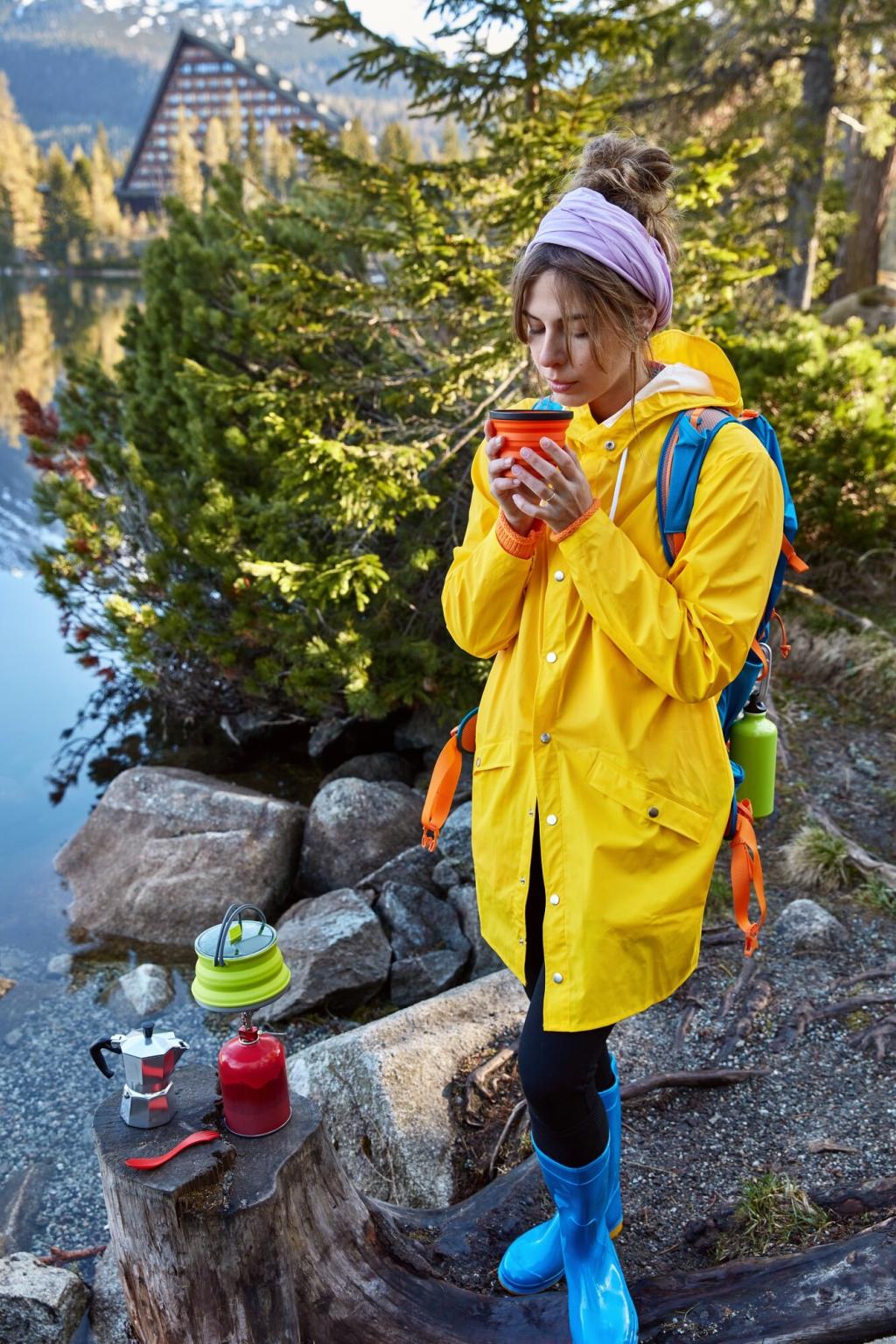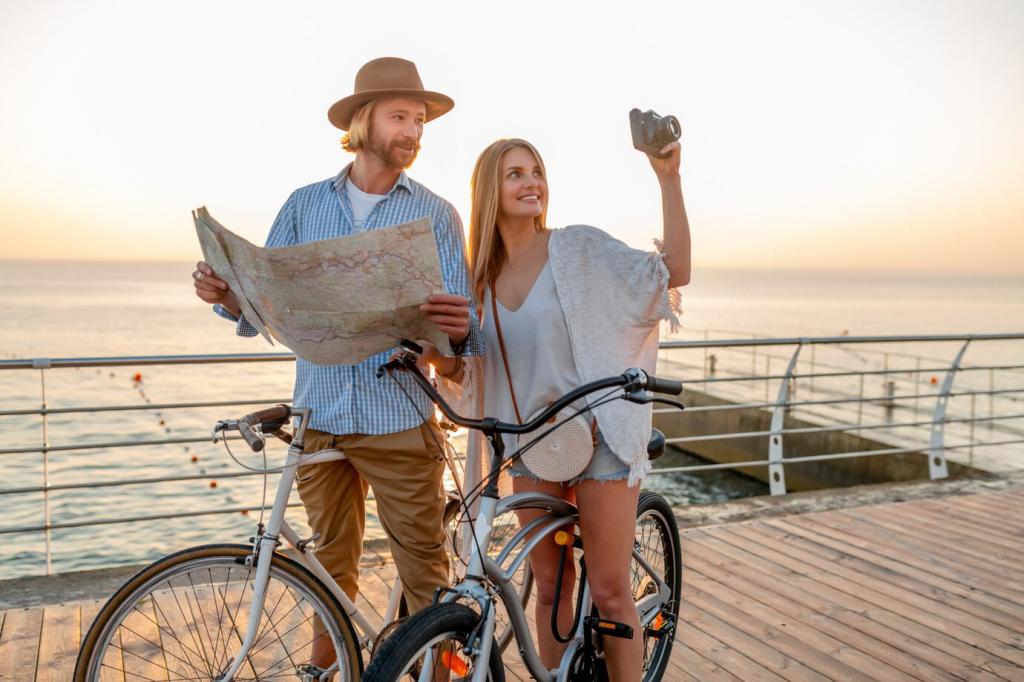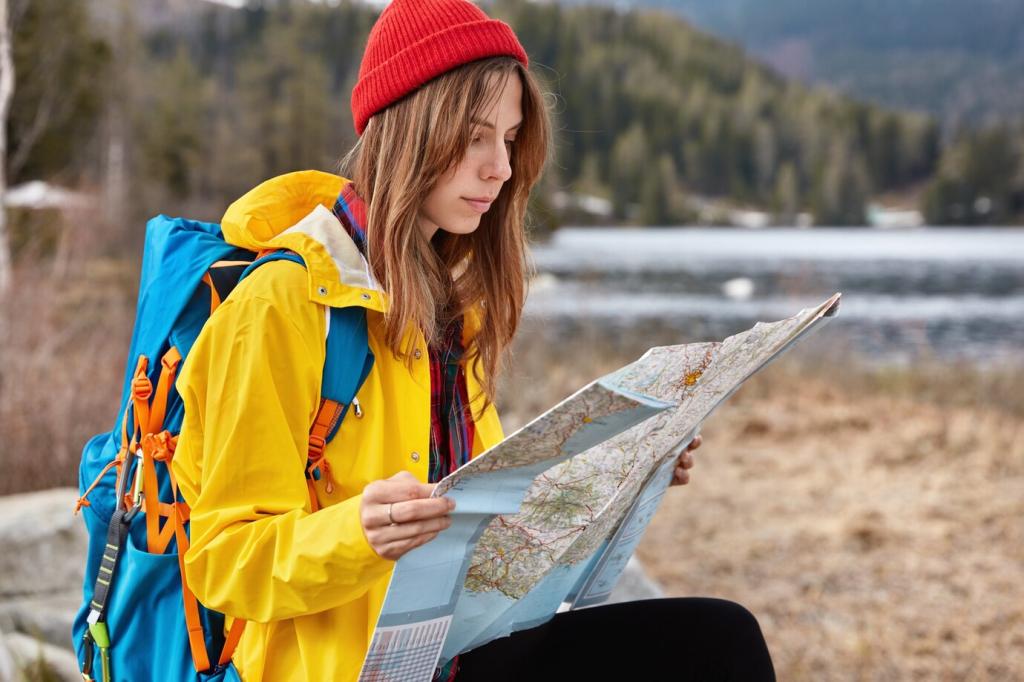Cultural Walking Tours in Historic Cities


Start Here: Why Cultural Walking Tours in Historic Cities Matter
On a quiet lane, the groove in a stepworn stone can feel like a handshake with centuries. In Prague, a bell once echoed as we paused beside a medieval well, realizing we were eavesdropping on time itself.
Start Here: Why Cultural Walking Tours in Historic Cities Matter
The human pace invites senses to wake: bread warming behind shutters, laundry clapping in wind, a mural’s chipped paint. In Kyoto’s lantern-lit alleys, walking gently led to a smile and a whispered story over green tea.
Planning the Perfect Route
Map Reading With Meaning
Overlay a city map with stories: archives for former guild streets, plaques for resistance sites, UNESCO notes for protective zones. Pin rest stops near fountains, and bookmark stair-free connectors to keep the group flowing and engaged.


Pacing for Discovery
Plan a rhythm: ten minutes of walking, five minutes of looking, and unscripted pauses when curiosity calls. A turn taken slowly once revealed a Viennese passageway where a violinist practiced, reframing our route around unexpected music.
Stories in Stone: Architecture and Urban Design
Reading Facades Like Pages
Window proportions whisper about climate and craft; iron balconies sketch waves in Lisbon winds; tilework preserves geometry and memory. Trace mortar lines with your eyes, and notice how renovations negotiate between safeguarding history and welcoming the present.
Squares as Stages
Historic squares host markets, protests, dances, and reunions. In Kraków, a bugle call breaks mid-melody to honor a legend, reminding listeners that memory can be ritual. Sit, listen, and let the choreography of daily life guide your route.
Bridges and Gateways
Crossings are thresholds: Charles Bridge’s statues greet pilgrims and painters; Marrakech’s Bab Agnaou guards stories in carved stone; Trier’s Porta Nigra meditates on empire. Share a bridge that changed your walk, and we will map its context.
Local Etiquette, Language, and Respectful Encounters
A soft hello, a nod, a small purchase before questions—little courtesies invite warmth. Try buenos días, salam aleikum, or a gentle bow. Notice shoe customs at temples and whisper-voices in courtyards. Share a local gesture you treasure.
Local Etiquette, Language, and Respectful Encounters
Ask open questions about crafts, recipes, or family traditions, then truly listen. A watchmaker in Lviv once traced a city’s heartbeat through repaired clocks. Submit your own encounter; we may feature it in a future walking story.


Taste the City: Culinary Stops Along the Way
Arrive early as canopies rise and voices warm. In Florence, Mercato di San Lorenzo hums with recipes shared across generations. Taste seasonal fruit, ask sellers for cooking tips, and note how produce maps the region’s landscapes and stories.

Sustainable and Accessible Walking
Stay on marked paths, refill bottles at public fountains, and support repair over replacement. Learn heritage guidelines before touching artifacts. Small habits scale into stewardship when travelers share them—comment your favorite low-impact walking tip today.

Sustainable and Accessible Walking
Scout curb cuts, gentle gradients, seating intervals, and quiet rest stops. Note audio guides, tactile models, and captioned resources. Share accessibility observations so our itineraries welcome wheelchairs, strollers, canes, and every curious walker ready to explore.

Pack Smart, Walk Freely
Bring a small water bottle, sun protection, layered clothing, a compact notebook, and a phone with offline maps. Zipped pockets and a tiny first-aid pouch reduce worry, leaving your attention free for serendipity and conversation.

Stay Aware, Stay Open
Note landmarks, trust your instincts, and ask locals about areas best enjoyed by daylight. Curiosity thrives alongside care. Share a safety insight that improved your walk, and help others approach historic neighborhoods with confidence and respect.
